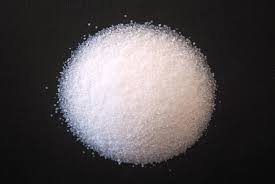
Jul . 27, 2024 23:15 Back to list
Optimal Potash Fertilizer Application for Healthy Vegetable Growth and Increased Yield in Gardens
The Importance of Potash Fertilizer for Vegetable Growth
Potash fertilizer, which primarily contains potassium-rich compounds, plays a crucial role in the growth and development of vegetable crops. Potassium is one of the three essential macronutrients required by plants, alongside nitrogen and phosphorus. While nitrogen aids in promoting leafy growth and phosphorus supports root development and flowering, potassium ensures overall plant health, enhances resistance to disease, and improves the quality of the produce. In this article, we will explore the significance of potash fertilizer in vegetable cultivation, its benefits, and its effects on growth and yield.
Promoting Healthy Growth
Potash is essential for the physiological functions of plants. It plays a vital role in photosynthesis, the process by which plants convert sunlight into energy. By regulating the opening and closing of stomata, potassium helps maintain the plant’s water balance, leading to improved water uptake and transpiration. This is particularly important in vegetables, which often require consistent moisture levels to thrive.
Moreover, potassium contributes to the synthesis of proteins and starches, essential components for healthy plant tissue
. Vegetables like tomatoes and potatoes, which have high carbohydrate content, benefit significantly from adequate potash levels. Enhanced carbohydrate synthesis translates to vigorous growth and better yield.Enhancing Disease Resistance
One of the lesser-known benefits of potash fertilizer is its role in enhancing a plant's resistance to diseases. Adequate potassium levels help strengthen cell walls, making it harder for pathogens to penetrate the plant. Additionally, potassium boosts the plant's ability to produce secondary metabolites, which are compounds that can deter pests and pathogens. For example, studies have shown that crops like peppers and cucumbers treated with potash fertilizer displayed greater resistance to fungal infections.
Furthermore, healthier plants are generally more resilient against environmental stresses, such as drought, extreme temperatures, and nutrient deficiencies. This resilience is particularly crucial for vegetable crops, which are often subject to varying environmental conditions throughout their growing seasons.
potash fertilizer for vegetables

Improving Fruit Quality
The quality of vegetables is directly impacted by potassium levels in the soil. Potash fertilizer significantly influences the taste, color, and storage life of vegetable crops. For instance, vegetables like carrots, beets, and bell peppers require potassium for optimal color development and sweetness. High levels of potassium can enhance flavor profiles, resulting in more palatable harvests.
Moreover, potassium promotes even ripening, which is vital for commercial growers aiming to meet market demands for uniform produce. Well-developed tubers and fruits also have a longer shelf life and are less prone to bruising, which is a significant benefit for both consumers and producers.
Application Guidelines
When applying potash fertilizer, it’s essential to conduct soil tests to determine existing potassium levels and to tailor fertilization practices accordingly. The application rate will depend on the specific vegetable crop, soil type, and growth stage. Typically, potash fertilizers can be applied before planting or as a side dressing during the growing season. Organic options, such as wood ashes or green manure, can also provide a natural source of potassium for those interested in sustainable farming practices.
Conclusion
In conclusion, potash fertilizer is indispensable for successful vegetable cultivation. Its contributions to healthy growth, disease resistance, and superior fruit quality make it a vital component of crop management. By understanding the role of potassium in plant health, farmers and gardeners can make informed decisions that lead to bountiful harvests and robust vegetable crops. Emphasizing the use of potash fertilizer will invariably result in improved productivity and sustainability in the gardening and agricultural sectors.
-
10 10 10 Fertilizer Organic—Balanced NPK for All Plants
NewsJul.30,2025
-
Premium 10 10 10 Fertilizer Organic for Balanced Plant Growth
NewsJul.29,2025
-
Premium 10 10 10 Fertilizer Organic for Balanced Plant Growth
NewsJul.29,2025
-
Premium 10 10 10 Fertilizer Organic for Balanced Plant Growth
NewsJul.29,2025
-
50 Pound Bags of 13-13-13 Fertilizer for All Plants – Bulk & Organic Options
NewsJul.28,2025
-
High-Efficiency 15-30-15 Granular Fertilizer for Healthy Crops
NewsJul.28,2025
